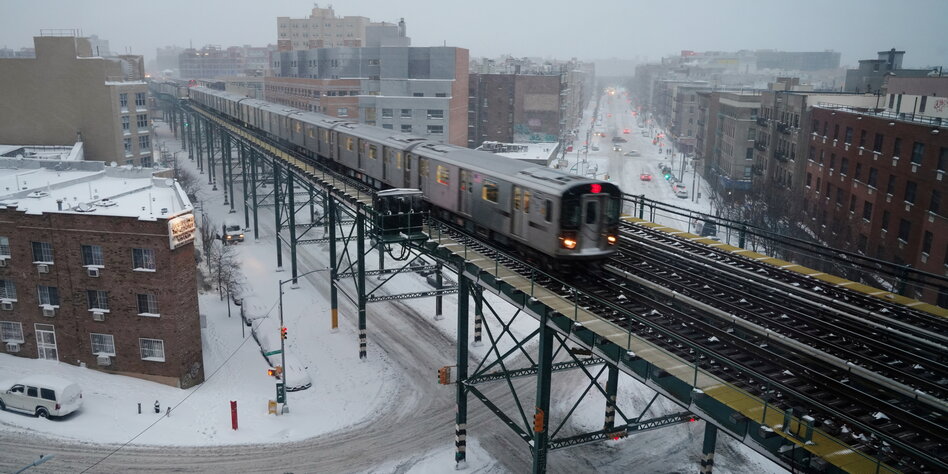A moratorium ends on December 31st in the USA. So far, it has protected people who have been unable to pay their rent because of the pandemic.
New York, the city of tenants, not just the skyscrapers Photo: David Delgado / reuters
NEW YORK taz | One of the few positive side effects of the pandemic is that the sudden build-up of furniture, toys, and kitchen utensils on a sidewalk has become rare in the United States in recent months. There is always a catastrophe behind the scene: people who have not paid their rent are thrown out onto the street with their belongings on behalf of a landlord.
For many, this begins the descent into homelessness. Those who have no relatives with a visitor sofa “live” afterwards in a cheap motel on the highway, on a campsite, in the back seat of a car or right on the street.
When tens of millions of people became unemployed overnight in the spring of this year, individual states imposed temporary eviction bans. In late summer, the CDC health authority turned it into a nationwide eviction moratorium. She justified it medically: In a pandemic, homelessness is a health risk.
In New York, one of the cities with the highest rents in the country, banners appeared in the spring with the words: “Cancel the Rent” – cancel the rent! But the state governor didn’t even consider obeying the invitation. The Democrat Andrew Cuomo decided that temporarily nobody who cannot pay their rent because of Covid-19 will be evicted. But he only had a postponement for the rent payments.
New York landlords are efficient lobbyists
As a result, hundreds of thousands of New Yorkers are now sitting on rental debts that they couldn’t repay even if they got back their badly paid old jobs. Your average rent arrears are over $ 5,000.
The moratorium expires on December 31st. In the middle of winter and at the height of the deadliest wave of the pandemic, up to 30 million people in the USA are threatened with the streets. In New York, thousands of landlords have used the past few months to file eviction lawsuits. Now they are just waiting to be allowed to take action.
New York landlords – which includes Donald Trump and his son-in-law – are an efficient lobby that can put pressure on when their interests are affected. As the parliament in Albany this month begins to discuss an extension of the eviction moratorium for the state, the landlords are immediately present.
In the past week it is the turn of the associations of the “small” New York landlords. “The New York housing market is facing a catastrophe,” they threaten, “if we have no rental income, we can no longer pay our taxes. Then the real estate speculators take over. “
Crucial: The 20 days before Biden’s inauguration
One of the few other positive side effects of the pandemic is that rents in New York have fallen for the first time in a very long time. From a city where landlords are in charge, New York has become a “tenant city” this year, where supply is greater than demand for apartments. Because hundreds of thousands have left the city because of the pandemic, living space is empty.
When I wanted to take advantage of this economic boom to move into an apartment that costs 20 percent less rent, my landlady tripped me off. “You can move out,” she said, “but you have to keep paying your rent until the contract expires.” The tenants’ associations I sought advice from are busy with eviction suits. I remain. And I hope that New York will still be a “tenant town” when my contract expires.
In a country with almost no tenancy law, it is not easy to win against landlords. During the pandemic, some of them sued the CDC’s eviction moratorium. It is unconstitutional. In several places in the country judges decide in their favor. In New York, too, there have been isolated evictions since November.
The tenants’ associations consider the 20 days between the end of the year and the inauguration of the new president to be the most dangerous. Her hope is that Joe Biden will impose a new federal moratorium on evictions when he takes office.
– .


